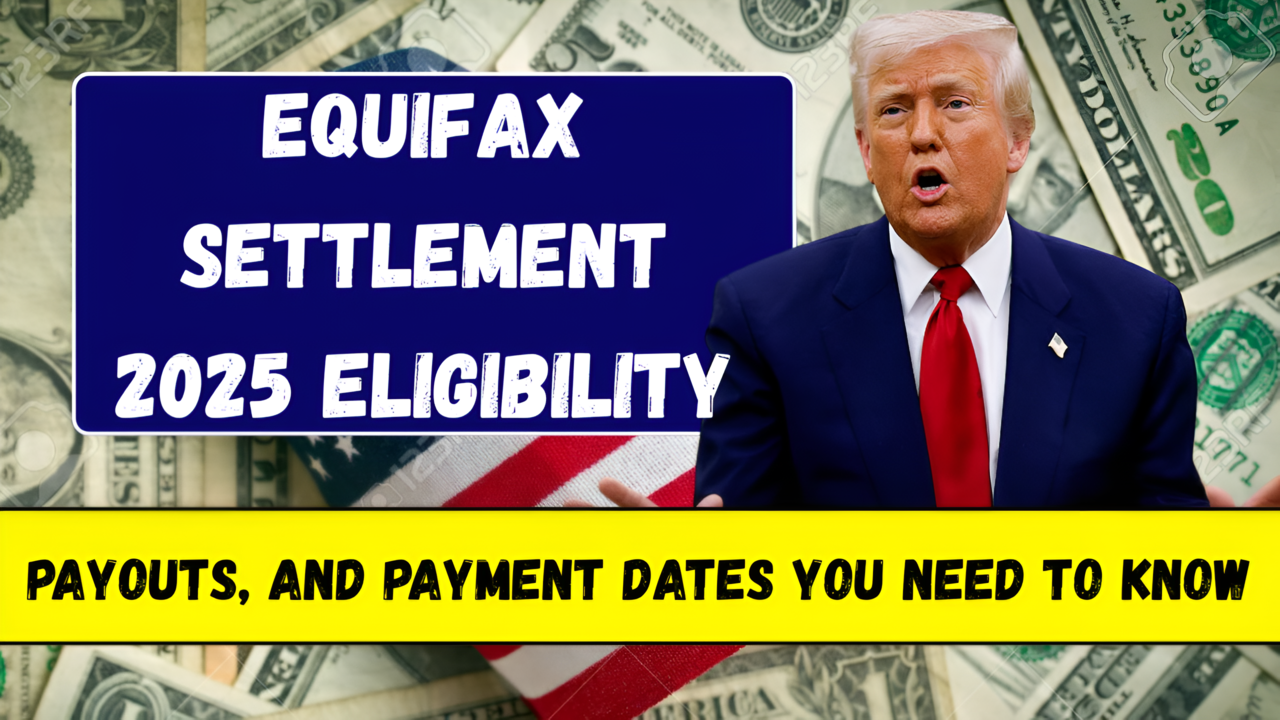In 2017, the Equifax data breach shocked the world as one of the largest cybersecurity incidents ever recorded, exposing the personal and financial information of approximately 147 million Americans. After years of legal disputes, the Equifax Settlement 2025 has finally reached a resolution, offering financial reparations and identity recovery resources to affected individuals. This landmark settlement serves as a critical opportunity for victims to receive compensation and regain control over their personal data.
In this blog post, we’ll break down everything you need to know about the Equifax Settlement 2025, including eligibility requirements, payout details, and expected payment timelines.
What Is the Equifax Settlement 2025?
The Equifax Settlement 2025 is the culmination of a class-action lawsuit brought against Equifax for its failure to protect consumer data in the wake of the 2017 breach. As part of the settlement, Equifax has agreed to pay a total of $425 million, allocated to compensate victims, provide identity protection services, and fund initiatives to prevent future cybersecurity breaches.
Highlights of the Settlement
- Total Amount: $425 million
- Incident Date: Data breach occurred in 2017
- Affected Individuals: Approximately 147 million people
- Claim Deadline: January 22, 2024
- Payment Options: Mailed checks or direct deposits
The settlement not only aims to provide monetary reparations but also ensures access to essential tools like credit monitoring, which can help victims protect themselves from future incidents of fraud or identity theft.
Who Is Eligible for Compensation?
While millions were affected by the breach, not everyone automatically qualifies for a payout under the settlement. Eligibility is determined based on several criteria that applicants must meet.
Criteria for Eligibility
- Inclusion in the Breach: Your personal or financial data must have been compromised in the 2017 Equifax data breach. Affected data may include Social Security numbers, dates of birth, credit card numbers, and more.
- Filed Claim by Deadline: Individuals must have filed their claims before the January 22, 2024 cutoff to be considered for compensation.
- Proof of Loss (if applicable): Claimants seeking compensation for out-of-pocket expenses must provide evidence, such as receipts, invoices, or other documentation.
Even if you didn’t incur specific financial losses, you may still qualify for other benefits, including free credit monitoring services.
What Can Victims Claim?
There are several components to the settlement, allowing eligible claimants to receive compensation that aligns with their losses:
- Monetary Reimbursement: Up to $20,000 for documented out-of-pocket expenses resulting from the breach, including fraud or identity theft.
- Time Compensation: Up to $25 per hour for time spent addressing issues related to the breach, capped at 20 hours (totaling $500).
- Credit Monitoring Services: Up to 10 years of complimentary credit monitoring and identity theft protection.
How to File and Track Your Claim
For those who filed a valid claim by the deadline, it’s crucial to know how the process unfolds from here. Here’s what you can expect:
- Verification of Claims: Each claim is carefully reviewed to ensure eligibility and accuracy. Supporting documentation for financial losses or time spent addressing fraud is thoroughly vetted.
- Payment Preferences: Claimants can choose between direct deposit payments or checks mailed to their registered address.
- Tracking Progress: Claimants can monitor the status of their claims by visiting the settlement’s official website or contacting the claims administrator.
Necessary Documentation
To streamline the process, ensure you’ve submitted the following (if applicable):
- Receipts for any out-of-pocket expenses incurred
- Bank statements showing unauthorized transactions
- Logs of time spent resolving issues, such as emails, phone records, or notes
Having comprehensive documentation strengthens your claim and reduces the likelihood of delays.
Payout Details and Expected Payment Timeline
The Equifax Settlement 2025 outlines a tiered structure for compensation. Here’s a closer look at what claimants can expect:
Compensation Breakdown
- Monetary Reimbursement: Claimants with verifiable expenses can receive up to $20,000, covering costs like hiring experts to resolve identity theft, replacing documents, or covering fees resulting from fraud.
- Time Compensation: For time spent addressing issues (e.g., calling financial institutions, monitoring accounts), claimants may receive $25 per hour, capped at 20 hours.
- Credit Monitoring Services: All eligible claimants are entitled to free credit monitoring for up to 10 years, including regular credit report access and alerts for suspicious activity.
Payment Timeline
While exact payment dates may vary, initial payouts are anticipated to begin by mid-2025. Factors that could influence timelines include:
- Volume of Claims: High numbers of claims require significant administrative processing.
- Verification Period: Time needed to assess supporting documentation and resolve disputes.
- Appeals or Delays: Legal appeals or unresolved claims may result in delays for some recipients.
If you haven’t received your payment within the projected timeline, reach out to the settlement administrator for clarification.
Steps to Follow If You Haven’t Been Paid
If mid-2025 arrives and you still haven’t received your payment, don’t panic. Here’s what you can do:
- Check Your Claim Status: Visit the official Equifax Settlement website or call the claims administrator to verify the status of your payment.
- Confirm Contact Information: Ensure that your registered address and banking details are correct.
- Provide Additional Documentation: If your claim requires further information, respond promptly to avoid delays.
Proactive communication with the settlement administrator can help resolve any issues in a timely manner.
Why the Equifax Settlement Is a Landmark Case
The Equifax Settlement 2025 carries profound significance beyond the monetary compensation it offers. It serves as a stark reminder of the importance of cybersecurity in an increasingly digital world and the responsibility of corporations to protect consumer data.
Key Lessons Learned
- Importance of Cybersecurity: The breach underscored the critical need for robust security measures to safeguard sensitive information.
- Consumer Vigilance: Individuals must remain proactive in monitoring their credit, safeguarding their personal data, and acting swiftly in the event of fraud.
- Corporate Accountability: The settlement sets a precedent for holding companies accountable for lapses in data protection.
Conclusion: Taking Steps Toward Recovery
The Equifax Settlement 2025 offers a measure of justice and relief to millions of Americans affected by the 2017 breach. By understanding the settlement’s eligibility criteria, payment structures, and timelines, you can ensure that you’re fully prepared to receive the compensation and benefits you’re entitled to.
For those impacted, this settlement is a reminder to remain vigilant about personal data security and to take advantage of available resources like credit monitoring and fraud protection. While the settlement marks an important step toward accountability, it also highlights the importance of staying proactive in safeguarding your identity in the digital age.
F&Q
1. What is the Equifax Settlement 2025?
It’s a legal resolution offering compensation and identity protection to victims of the 2017 Equifax data breach.
2. Who is eligible for compensation?
Those whose personal data was compromised in the 2017 breach and filed claims before January 22, 2024.
3. How can I file a claim for compensation?
Submit your claim on the official settlement website, including required documentation by the deadline.
4. What can I claim in the settlement?
Monetary reimbursement, time compensation for resolving issues, and up to 10 years of credit monitoring services.
5. When will I receive my compensation?
Initial payouts are expected to begin by mid-2025, depending on claim volume and processing.


